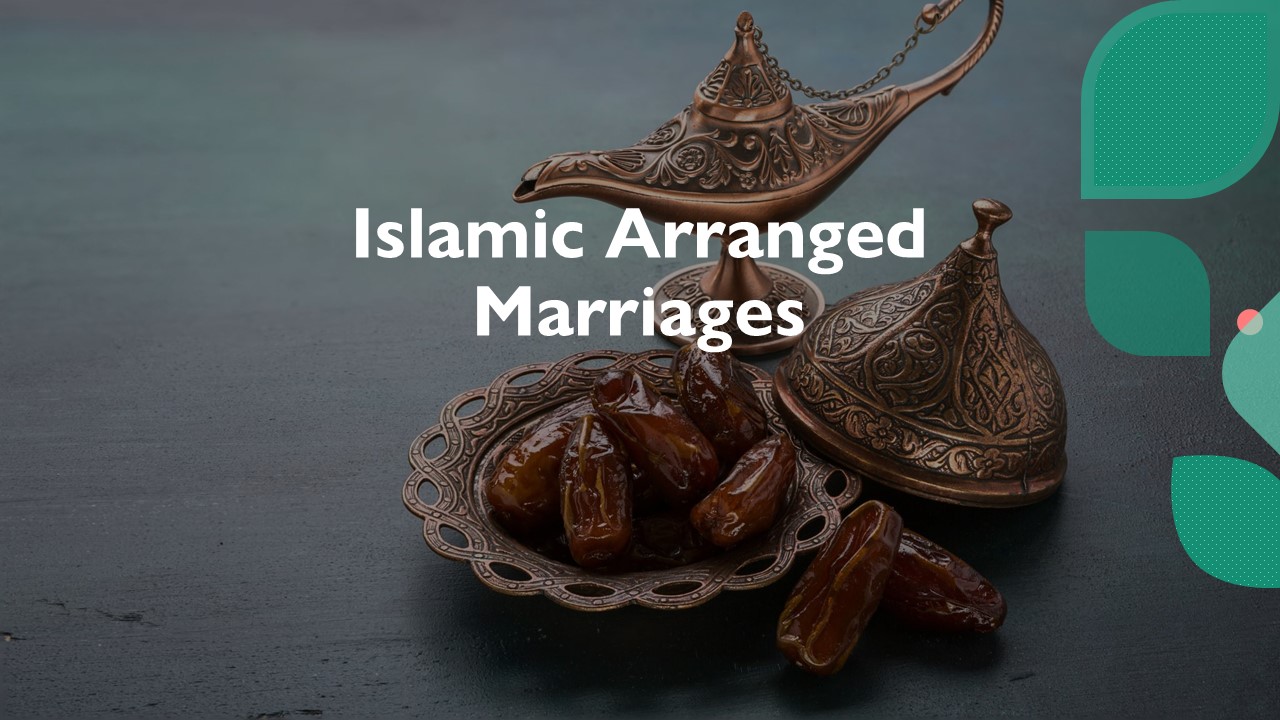Islamic arranged marriages have been a traditional type of marriage in Muslim countries for centuries. They are still widespread in the Muslim world and among Muslim emigrants in many other countries.
What Is an Marriage?
An arranged marriage is one in which parents or other senior members of the extended family select a potential mate for their daughter or son. Community elders and professional matchmakers might also be involved in finding a suitable spouse. The groom and bride have little opportunity to express their preferences as to whom they want to marry. Parents and other members of the extended family also decide on the proper time and plan the wedding events and rituals according to cultural traditions.
Both the groom and the bride usually consent to all these arrangements out of respect for this cultural tradition. They both rely on others in the planning of their wedding. They may have some degree of freedom to express their wishes about whom they want to marry. However, this preference must be in accordance with family wisdom. Cultural traditions of arranged marriages have been typical across many collectivistic societies throughout the centuries.
Collectivistic traditions and modernization
This kind of marriage has been widespread in collectivistic societies because of the cultural value of relationship interdependence in families and other social groups. Arranged marriages are still practiced in some traditional collectivistic countries, in rural areas more frequently than in urban ones, and among lower-educated men and women more often than among more educated young people.
Collectivistic attitudes toward arranged marriage in traditional societies are quite positive and different from modern individualistic societies.
The current modernization of many traditional societies, however, makes some people doubt the suitability of this old cultural custom for a new generation of men and women.
Let us review such practices of arranged marriage in Muslim societies, in which collectivistic cultures have been traditionally very strong. Here are two of them: Pakistan and Saudi Arabia.
The Islamic Arranged Marriages in Pakistan
The Muslim country of Pakistan is a typical example of a traditional society with high values of collectivism, power distance, and social inequality (Hofstede, 1998; 2001, 2016).
People of different socioeconomic classes are distinctly separated according to social strata. Societal and personal relationships are structured collectivistically and hierarchically. Members of society recognize and accept social status differences, power distance, and social hierarchy as necessary for the proper organization of society.
Interpersonal connections and relationships recognize both collectivistic values and the value of power differences. Gender inequality and patriarchal families and institutions are common, especially in rural areas.
Islamic arranged marriages have been traditionally highly prevalent in Pakistani culture. Even in an urban Muslim community in Pakistan’s largest city of Karachi, these kinds of marriages were common in 1961–1964 (Korson, 1968).
Relatives arrange their sons’ and daughters’ marriages, selecting a proper mate from a pool of eligible prospective partners in the community. Families from the lower social classes have a limited pool of potential candidates. So, they choose their boys’ and daughters’ spouses from the neighborhood community. Families from the upper social classes can afford to choose their potential marital partners from the larger regional population.
The Modern Cultural Evolution of Islamic Arranged Marriages
Islamic arranged marriages have been undergoing cultural evolution in recent years, along with the gradual changes in modern Pakistan and its social practices. The tradition is still popular in rural areas and among low-educated people. However, new trends toward freedom of marital choice and love marriages are evident. Educated women feel more empowered in their relationships now than ever before (Ahmed, 2022; Khurshid, 2020).
The Islamic Arranged Marriages in Saudi Arabia
The Muslim society of Saudi Arabia is another example of traditional culture. Collectivism, power distance, and social inequality are culturally acceptable values (Hofstede, 1998; 2001).
Arranged marriages in Saudi Arabian society are similar in many regards to those in other Muslim countries, yet the attitudes toward gender roles, relationships, and marriage are more conservative and culturally old-fashioned.
Personal kinship connections with a prospective mate are often preferred in Saudi Arabian arranged marriages (El-Hazmi et al., 1995). Such consanguinity implies that a potential spouse would be descended from the same ancestor and belong to the same kinship. Such closely related candidates can be first cousins, first cousins once removed, second cousins, third cousins, or more distantly related men and women. Thus, the consanguineous form of arranged marriage is quite common.
Generally, matchmaking and arranged marriages in Saudi Arabia are characterized by
- Gender segregation assumes that a woman and a stranger man are not allowed to meet without a “mahram” for the woman to be protected…
- “Bir al walidayn” implies family involvement and stipulates that a son or a daughter needs to involve their parents in the marriage process and obey their opinions,
- “Khotobah” entails the formal agreement between both families that is necessary for the relationship to proceed… (Al-Dawood, Abokhodair, & Yarosh, 2017, p. 1022).
Nowadays, men in Saudi Arabia may have a certain freedom to select a spouse. However, their choices are limited. A man knows little about a prospective bride. They can meet, but only if they are chaperoned. The more important thing for marriage is how relatives perceive the suitability of a possible match. (Al-Dawood, Abokhodair, & Yarosh, 2017).
The transformation of cultural attitudes toward arranged marriage in Saudi Arabia has been slow in recent decades. They are still fairly conservative.
